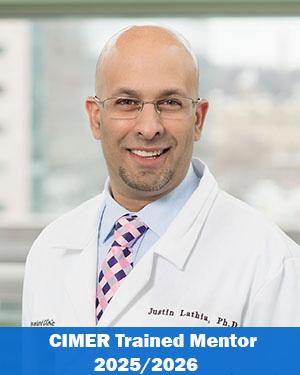Research News
07/12/2023
Immunotherapy could be more effective in men with glioblastoma – exhausted T-cells help explain why
Novel finding shows T-cells, a central part of the body’s immune response, exhaust sooner in men than in women.

T-cells become exhausted faster in men than in women with glioblastoma, according to Cleveland Clinic research published in Cancer Discovery.
T-cells patrol the body to detect pathogens and abnormal cells. The study, which included preclinical models and patient samples, identified a new contributor to the differences in glioblastoma occurrence and prognosis between men and women. T-cell exhaustion may also contribute to ongoing clinical results where men are responding better to current immunotherapy treatments, results show.
“When T-cells are continuously exposed to stimulation – like an immune response to cancer – it can lead to the cells becoming exhausted and unable to function, which is one of the ways cancers can survive and grow, ” says Juyeun Lee, PhD, the study’s first author and a postdoctoral fellow in the laboratory of Justin Lathia, PhD, staff in Cardiovascular & Metabolic Sciences and the Melvin H. Burkhardt Endowed Chair for Neuro-Oncology Clinical Research.
Checkpoint inhibitor therapies are designed to reverse T-cell exhaustion and bolster the body’s immune response. These data show that male and female T-cells are different – essentially operating on separate timelines – which suggests scientists need to develop separate treatment approaches, Dr. Lee says.
The research also showed that the differences in T-cell exhaustion are linked to how genes are coded on the X chromosome, which is specific to brain tumors. In other types of cancer, the body’s hormone levels influence how T-cells perform.
“These mechanisms specific to brain tumors show the need for specialized treatments and approaches tailored to brain cancer, rather than relying on knowledge derived from other cancer types,” Dr. Lee says. “In future research, our focus will be on explaining the reasons behind and the mechanisms by which brain tumors differ from other cancers.”
Researchers also tested whether inhibiting the function of UTX, a protein encoded by a gene on the X chromosome, would improve outcomes. Although the testing produced significant results, there are risks in targeting that gene because it impacts both T-cells and cancer cells. The next step is studying the molecules regulated by that gene for a precise therapeutic approach, Dr. Lee says.
The Lathia Laboratory has studied the differences in glioblastoma between men and women for years, looking for insights that can help in providing better treatments for the disease. Previously, the group linked sex-based differences to myeloid cells in the bone marrow.
“This discovery complements the progress we’ve made thus far in understanding how to personalize treatment for glioblastoma,” says Dr. Lathia. “Each patient is different. Each cancer is different. So building up a complete understanding of the immune system here helps us move forward.”
Featured Experts
News Category
Related News
Research areas
Want To Support Ground-Breaking Research at Cleveland Clinic?
Discover how you can help Cleveland Clinic save lives and continue to lead the transformation of healthcare.
Give to Cleveland Clinic